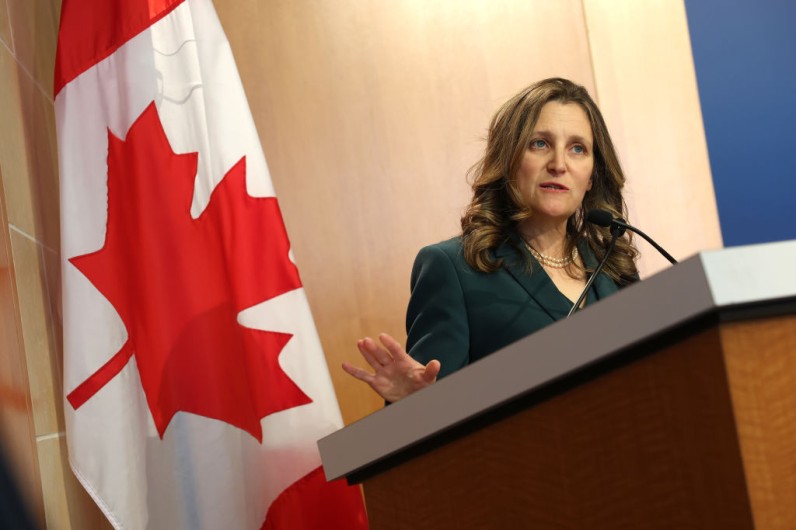
On Monday, June 24, Canada announced that it was contemplating tariffs on electric vehicles produced in China as part of its efforts to stand with its allies, the United States and the European Union.
Canada to Into China's EV Trade Practices
The Canadian federal government announced a 30-day consultation period to investigate Beijing's trade practices in the EV industry, taking a step toward increasing the import tariff on China-made electric cars.
Deputy Prime Minister and Finance Minister Chrystia Freeland said on Monday that China's state-directed strategy of EV overcapacity was unfairly competing with the local car industry, reiterating worries the US and EU voiced.
"We are living in a world right now where China is taking advantage of the global economic system. We know we need to defend our national interest and we will," she said, according to CBC News.
Freeland indicated that a levy on imports might be part of the solution. She was tight-lipped on the possible measures Canada would take and whether or not EV parts like batteries could be targeted. According to her, Canada is not ruling out any options and is using their powerful trade action tools.
This follows last week's call by the premier of Ontario for Ottawa to levy tariffs of 100% or more on automobiles, as reported by Reuters. Ontario is the most populous province in Canada and is also known as a major automotive hub.
Tariff Hikes on China-made EVs
Last month, US President Joe Biden announced significant tariff hikes on EVs and other Chinese products.
Chinese automakers BYD, Geely, and SAIC, and Tesla and BMW vehicles manufactured in China, are also facing extra levies from the European Commission of up to 38%.
China claims that the EV industry's growth was due to technological, market, and supply chain advantages. It denies allegations of improper subsidies and overcapacity. China ranks as Canada's second-largest commercial partner after the US.







Join the Conversation